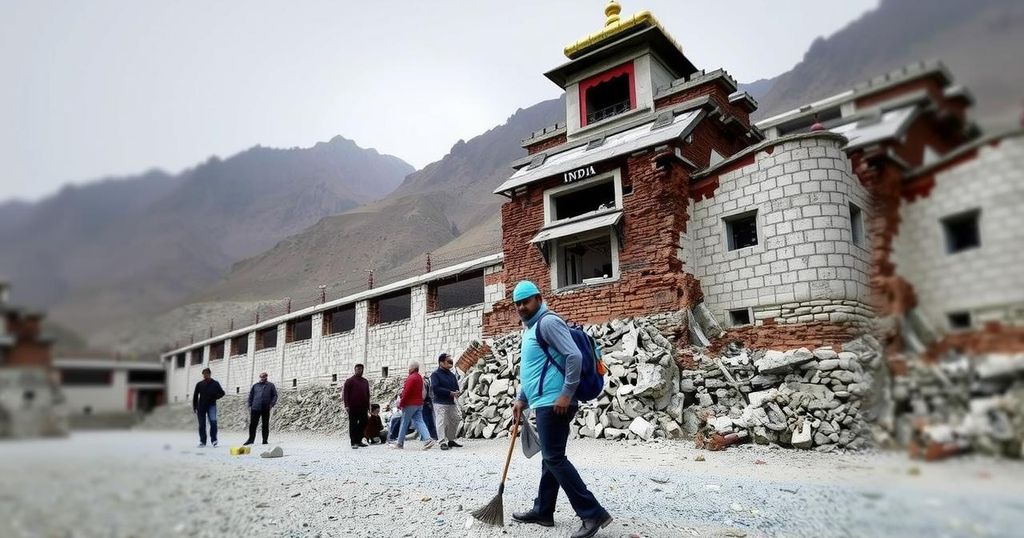India’s recent condolence message regarding the Dingri county earthquake in Tibet notably avoided mentioning “China” or “Xizang,” contrasting with other nations that reached out to China. The earthquake claimed numerous lives and resulted in extensive property damage. This response reflects a growing Indian reluctance to recognize China’s claims over Tibet, amid ongoing geopolitical tensions and disputes.
The recent earthquake in Dingri county, Tibet, which occurred on January 7, has drawn responses from various countries, notably highlighting India’s unique position. While countries like Pakistan have reached out to express condolences to China, India refrained from mentioning either “China” or its Sinicized designation for Tibet, “Xizang”, in its message. India’s statement focused solely on the devastation and loss of life, emphasizing empathy towards the victims.
Furthermore, India has increasingly distanced itself from China concerning its stance on Tibet. The decision to omit references to China in the condolence message reflects a broader reluctance to officially recognize the claims underlying China’s narrative on Tibet. Reports indicate significant casualties and damage from the earthquake, with Chinese authorities acknowledging the death of at least 126 individuals and extensive property loss in the region.
The difference in responses to the earthquake underscores the complicated geopolitical dynamics between India and China. Despite a recent agreement to alleviate military tensions, India’s concerns about Chinese infrastructure projects in contested territories remain a significant point of contention. As the situation develops, the responses from various nations will likely reflect their respective stances on the matters relating to China’s historical claims over Tibet and regional sovereignty.
The article discusses the geopolitical implications following a devastating earthquake in Tibet’s Dingri county. It highlights the absence of references to China and the term “Xizang” in India’s condolence message, contrasting it with actions taken by other nations, particularly those aligned with China’s narratives. The backdrop involves long-standing tensions concerning Tibet’s status, highlighted by China’s infrastructure activities and historical claims. The implications of these events echo in the broader developments involving China’s territorial disputes with India, notably regarding Arunachal Pradesh and areas in Jammu and Kashmir.
In summary, India’s restrained approach to expressing condolences amidst the recent earthquake in Tibet signifies a significant geopolitical stance against China’s narrative over the region. While several nations have publicly expressed their sympathies to China, India’s omission of crucial references indicates a clear distancing from acknowledging any Sinicized claims on Tibet. The evolving situation continues to spotlight the complex relationship between India and China, particularly as issues of territorial claims and infrastructure development persist in shaping regional dynamics.
Original Source: www.tibetanreview.net






